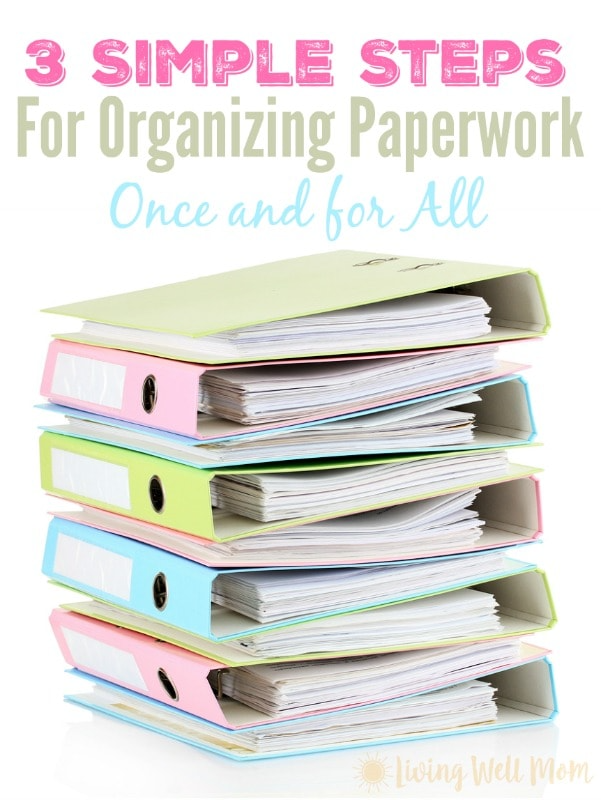Organize Your Home Paperwork: Simple Strategies

Paperwork tends to accumulate quickly, filling drawers, countertops, and surfaces until it becomes an overwhelming mess. Whether you're sifting through bills, school papers, insurance documents, or personal keepsakes, having an effective system for organizing your home paperwork can transform your living space and reduce stress. In this comprehensive guide, we'll explore simple strategies to organize your home paperwork, ensuring you can easily locate any document when needed, streamline your daily life, and maintain a clutter-free environment.
The Importance of Organizing Paperwork

Before diving into how to manage your documents, let's understand why it's crucial:
- Reduces Stress: A clutter-free home contributes to peace of mind.
- Saves Time: Knowing where everything is speeds up retrieving important documents.
- Improves Efficiency: Organized documents make financial management easier and improve workflow.
- Enhances Security: Keeping sensitive information secure reduces the risk of identity theft.
Step-by-Step Guide to Organize Your Home Paperwork

1. Assess and Sort

The first step in organizing paperwork is to assess what you have. Begin by collecting all your documents:
- Spread them out on a large surface or set up a temporary sorting station.
- Sort through the papers, identifying categories like bills, bank statements, health records, insurance policies, personal correspondence, etc.
2. Categorize and Declutter

Once sorted:
- Declutter: Get rid of outdated, irrelevant, or easily replaceable documents. This includes old utility bills, outdated insurance policies, or magazines.
- Shred Sensitive Documents: To prevent identity theft, shred any document with personal information before discarding it.
- Category Creation: Group similar documents into categories for easier management. Use labels like “Financial”, “Medical”, “Legal”, “Home”, “Work”, etc.
3. Organize Physically

Here are some methods for physical organization:
- Filing Cabinets or Boxes: Use file folders, label them clearly, and arrange by category.
- Binder System: For documents like warranties or health records, use binders with tabbed dividers.
- Accordion Files: Portable and expandable, these are ideal for bills and small documents.
4. Digitize Important Documents

Convert your paper documents to digital format:
- Use a scanner or take high-resolution photos with your smartphone.
- Store these digital files in organized folders on your computer or in cloud storage services like Google Drive or Dropbox.
- Set up password protection for sensitive files.
📌 Note: Ensure backups are in place to protect against data loss.
5. Establish a Daily Routine

Make organizing paperwork part of your daily routine:
- Set aside time each day to sort new documents.
- Have a designated “inbox” where all incoming papers are placed for sorting.
- Implement a “touch it once” rule for papers that require immediate attention or discarding.
6. Utilize Technology for Ongoing Management

Technology can help with the following:
- Paperless Billing: Opt for electronic statements to reduce paper clutter.
- Note-Taking Apps: Use apps like Evernote or OneNote to keep digital notes or scanned copies of important documents.
- Reminder Systems: Use calendar reminders for due dates or renewals.
7. Maintain and Review

Regularly review your documents to ensure everything is up to date:
- Have a monthly or quarterly routine to purge outdated or unnecessary documents.
- Update your systems as needed, possibly integrating new tools or software.
Organizing your home paperwork can seem daunting at first, but with these simple strategies, you'll find that it not only becomes manageable but also rewarding. An organized home is a serene space, allowing for better focus and reduced daily hassles. Remember, the key to maintaining organization is consistency, adaptability, and integrating technology where it helps streamline your life.
How often should I organize my paperwork?

+
It’s recommended to sort and manage paperwork daily for incoming documents. Additionally, a deeper organization session should be conducted at least monthly to keep everything in check.
What documents should I keep in physical form?

+
Documents like deeds, birth certificates, wills, and passports should remain in physical form due to their importance and legal requirements.
How long should I keep financial documents?

+
General rule of thumb is to keep tax-related documents for 7 years, bank statements for 1 year, and credit card statements until you have confirmed payment and transaction accuracy.